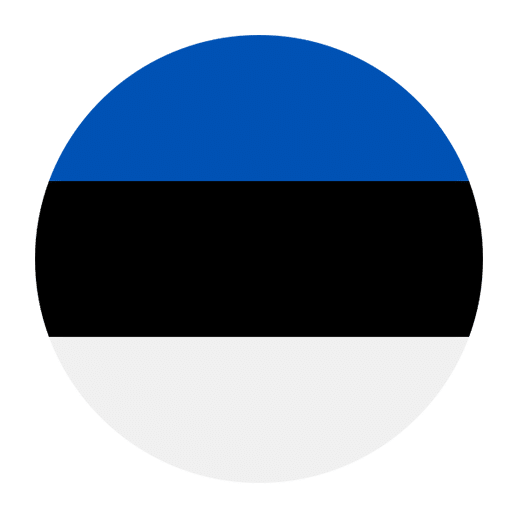Estonia, a small yet culturally rich country in Northern Europe, has a unique set of traditions, holidays, and celebrations. For language learners, understanding these customs and the associated holiday greetings can be an enriching way to immerse oneself in Estonian culture. This article will delve into the major holidays in Estonia, explaining their significance and providing you with the appropriate greetings and phrases used during these celebrations.
New Year’s Eve and New Year’s Day (Uusaasta)
New Year’s Eve, known as “Vana aasta õhtu,” is a time of celebration and reflection for Estonians. People gather with family and friends, enjoying festive meals and fireworks as they bid farewell to the old year and welcome the new one.
Greeting:
– “Head uut aastat!” (Happy New Year!)
On New Year’s Day, or “Uusaasta,” it’s common to exchange well-wishes for health, happiness, and prosperity in the coming year.
Phrases:
– “Palju õnne uueks aastaks!” (Best wishes for the New Year!)
– “Õnnelikku uut aastat!” (Joyful New Year!)
Independence Day (Iseseisvuspäev)
Estonia celebrates its Independence Day on February 24th, commemorating the declaration of independence in 1918. It is a day of national pride, marked by parades, concerts, and official ceremonies.
Greeting:
– “Head iseseisvuspäeva!” (Happy Independence Day!)
Estonians often reflect on their history and cultural heritage, making it a solemn yet celebratory occasion.
Phrases:
– “Elagu Eesti!” (Long live Estonia!)
– “Vabadus ja au!” (Freedom and honor!)
Shrove Tuesday (Vastlapäev)
Shrove Tuesday, or “Vastlapäev,” is a fun-filled day that occurs seven weeks before Easter. It combines pre-Lenten festivities with traditional Estonian customs. Sledding is a popular activity on this day, and families often enjoy “vastlakuklid” (cream-filled buns).
Greeting:
– “Head vastlapäeva!” (Happy Shrove Tuesday!)
This celebration is particularly beloved by children, who eagerly participate in the day’s activities.
Phrases:
– “Lähme kelgutama!” (Let’s go sledding!)
– “Naudi vastlakuklit!” (Enjoy your cream bun!)
Estonian Independence Restoration Day (Taasiseseisvumispäev)
On August 20th, Estonians celebrate the restoration of their independence from the Soviet Union in 1991. Known as “Taasiseseisvumispäev,” this day is filled with patriotic events, concerts, and family gatherings.
Greeting:
– “Head taasiseseisvumispäeva!” (Happy Restoration of Independence Day!)
It’s a day to express national pride and reflect on the resilience of the Estonian people.
Phrases:
– “Meie vabadus on kallis!” (Our freedom is precious!)
– “Tähistame koos!” (Let’s celebrate together!)
Christmas (Jõulud)
Christmas in Estonia, or “Jõulud,” is a time of warmth, family, and traditions. Celebrations begin on Christmas Eve, “Jõululaupäev,” with festive meals, gift-giving, and attending church services.
Greeting:
– “Häid jõule!” (Merry Christmas!)
Estonians also observe the custom of leaving food out for visiting spirits, a nod to ancient pagan traditions.
Phrases:
– “Rahulikku jõuluaega!” (Peaceful Christmas time!)
– “Jõulurõõmu ja õnne!” (Christmas joy and happiness!)
St. John’s Day (Jaanipäev)
St. John’s Day, or “Jaanipäev,” is one of the most important and beloved holidays in Estonia. Celebrated on June 24th, it marks the summer solstice and is characterized by bonfires, music, dancing, and traditional foods.
Greeting:
– “Head jaanipäeva!” (Happy St. John’s Day!)
Bonfires, known as “Jaanituli,” are lit to ward off evil spirits and bring good luck. Communities gather to celebrate the longest day of the year.
Phrases:
– “Tule meie jaanitulele!” (Come to our bonfire!)
– “Nautige suve!” (Enjoy the summer!)
Victory Day (Võidupüha)
Victory Day, or “Võidupüha,” is celebrated on June 23rd. It commemorates the decisive victory in the Battle of Võnnu during the War of Independence in 1919. The day is marked by military parades, ceremonies, and patriotic events.
Greeting:
– “Head võidupüha!” (Happy Victory Day!)
It’s a time for Estonians to honor their military history and celebrate their freedom.
Phrases:
– “Au ja kuulsus!” (Honor and glory!)
– “Meie kangelased!” (Our heroes!)
All Souls’ Day (Hingedepäev)
All Souls’ Day, or “Hingedepäev,” is observed on November 2nd. It’s a day to remember and honor departed loved ones. Many Estonians visit cemeteries, light candles, and reflect on the lives of those who have passed away.
Greeting:
– “Rahulikku hingedepäeva!” (Peaceful All Souls’ Day!)
This solemn day is an important part of the Estonian calendar, blending Christian and pre-Christian traditions.
Phrases:
– “Meenutame lähedasi.” (We remember our loved ones.)
– “Küünal süüdatud mälestuseks.” (A candle lit in memory.)
Victory Day (Võidupüha)
Victory Day, celebrated on June 23rd, commemorates Estonia’s victory in the War of Independence. It is marked by patriotic events, parades, and celebrations that honor those who fought for Estonia’s freedom.
Greeting:
– “Head võidupüha!” (Happy Victory Day!)
The day is often filled with speeches and ceremonies that reflect on Estonia’s military history and the importance of independence.
Phrases:
– “Meie vabadus on kallis!” (Our freedom is precious!)
– “Elagu Eesti!” (Long live Estonia!)
Mother’s Day (Emadepäev)
Mother’s Day in Estonia is celebrated on the second Sunday of May. It is a day to honor mothers and mother figures with gifts, flowers, and family gatherings.
Greeting:
– “Head emadepäeva!” (Happy Mother’s Day!)
Children often prepare special performances or handmade gifts to show their appreciation.
Phrases:
– “Aitäh, ema!” (Thank you, Mom!)
– “Sa oled parim!” (You are the best!)
Father’s Day (Isadepäev)
Father’s Day in Estonia is celebrated on the second Sunday of November. Similar to Mother’s Day, it is a time to honor fathers and father figures with gifts, cards, and family activities.
Greeting:
– “Head isadepäeva!” (Happy Father’s Day!)
It’s a day for children to express their love and gratitude to their fathers.
Phrases:
– “Aitäh, isa!” (Thank you, Dad!)
– “Sa oled minu kangelane!” (You are my hero!)
Other Noteworthy Celebrations
Estonia has a range of other cultural and public holidays that come with their own set of traditions and greetings.
Estonian Flag Day (Eesti lipu päev)
Celebrated on June 4th, Estonian Flag Day honors the national flag and its significance. It’s a day to reflect on national pride and identity.
Greeting:
– “Head Eesti lipu päeva!” (Happy Estonian Flag Day!)
Phrases:
– “Sinimustvalge!” (Blue-black-white!)
– “Eesti lipp kõrgel!” (Estonian flag high!)
Valentine’s Day (Sõbrapäev)
Known as “Sõbrapäev” or “Friendship Day,” Valentine’s Day in Estonia is celebrated on February 14th. It focuses on friendship and love, with people exchanging cards, gifts, and kind words.
Greeting:
– “Head sõbrapäeva!” (Happy Friendship Day!)
Phrases:
– “Sa oled mu parim sõber!” (You are my best friend!)
– “Armastan sind!” (I love you!)
International Women’s Day (Rahvusvaheline naistepäev)
International Women’s Day, celebrated on March 8th, is a day to honor women’s achievements and contributions. It is common to give flowers and express appreciation to the women in one’s life.
Greeting:
– “Head naistepäeva!” (Happy Women’s Day!)
Phrases:
– “Tänu kõigile naistele!” (Thanks to all women!)
– “Sa oled imeline!” (You are wonderful!)
Conclusion
Understanding holiday greetings and celebrations in Estonia not only enhances your language skills but also gives you a deeper appreciation of Estonian culture and traditions. Each holiday is a unique opportunity to practice your Estonian and connect with the local customs and people. Whether it’s wishing someone a “Head uut aastat!” or celebrating “Jaanipäev” around a bonfire, these phrases and traditions will surely enrich your language learning journey and bring you closer to the heart of Estonia.

